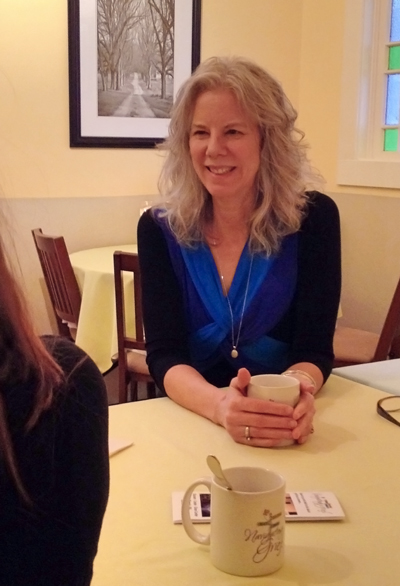
The short answer is “yes.” Yes, you should say something to those in your life who have experienced a death of someone close – even if it’s been months or longer since the loss and even if you don’t know what to say. Even if it is hard.
Navigating Grief founder Joan Hitchens specializes in helping people who have experienced a loss of a loved one move through their grief into healing. However, she also has great advice to those who are on the outside – one step removed from the loss – on what to say and how to handle social situations when you encounter someone in your life who you know is grieving.
Here are some guidelines to help you communicate your support in a positive way.
- Use the name of the person who has died when you talk. Don’t be afraid of saying their name.
- Acknowledge the great hole in that person’s life. You can say you are sorry for their loss, even if it’s been a long time since it happened. To some the “sorry” sentiment is received as trite. Sincere acknowledgement is the key.
- Listen. It’s ok to say, “I don’t know what to say.” Because we often don’t. Just show your love and listen. Listening is one of the most powerful ways of being with someone in loss.
- Don’t mistake the mask someone wears, appearing to have it all together, for a sign of full healing. The mask can just be a way to get through the day.
- Ask. Ask if your friend wants to talk. Sometimes having a normal conversation outside of the grief can be helpful.
- Feel. It’s ok to cry. Losing someone is hard. It’s ok to show the person you care for that you might also grieve as well as feel their loss, too.
- Remember the person who is gone in the best way you know how. Write a note, tell a story of remembrance, give a hug. Your acknowledgement of the loss shows your support. These are especially great to share during milestone dates: birthdays, anniversaries, holidays. “I remember” validates life.
- Avoid “At least…..” This minimizes the loss and is a no-no! “At least… he’s in a better place, she’s not suffering, it happened suddenly, you had time during her illness” – none of these statements comfort and often leave the bereaved misunderstood for his or her pain.
- Show empathy rather than pity. If you have not experienced a similar type of loss, empathy can comes from focus and compassion for the living person you care about. If you have had a similar loss, empathy comes from a more knowing place with recognition that circumstances and relationships may vary.
- No comparisons! Another friend’s loss, divorce compared to spouse loss, distant cousin and child loss can seem like empathy, but often is received as lack of your “getting it” – the huge impact of change and grief that comes after the death of the person mourned.
Death is a universal experience, but grief and loss is vey individual. (Read more on this topic here.) This is why what you say and not say can unknowingly carry a lot of weight. Very often it seems easier to say nothing and hope the person in grief will let you know. But the opposite if often true. The bereaved just want to know that you care and that the life of the loved one lives on through family and friends.
To learn more about Joan Hitchens and finding your journey for Navigating Grief, click here.




















































